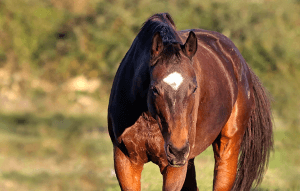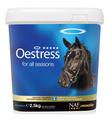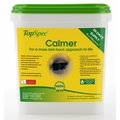Sensitive to a number of stressors, horses get depressed just as easily as cats and dogs. Prolonged stress can lead to gradual withdrawal and decline in horses, whether caused by environmental triggers or chronic pain. But how do you know if your horse is depressed?
Spotting depression:
Identifying a depressed horse is usually very easy, as is identifying the cause. Social or physical discomfort, whether acute or chronic, will cause obvious signs, but it is the chronic problems that lead to depression.
Depression is often characterised by withdrawal and tuning out to the environment, so not noticing or reacting to their surroundings as a non-depressed horse normally would.
 Withdrawn horses can be identified by long periods of immobility, with their heads in a fixed position, open-eyed and unblinking. They are less likely to react to environmental stimuli, such as new sights or sounds, whereas happy horses will be more sensitive.
Withdrawn horses can be identified by long periods of immobility, with their heads in a fixed position, open-eyed and unblinking. They are less likely to react to environmental stimuli, such as new sights or sounds, whereas happy horses will be more sensitive.
Other signs to look out for:
- Crib-biting and other destructive behaviours
- Weaving
- Unpredictable behaviours
- Subdued reactions
- Changing attitude
- Decreased appetite
Causes of depression:
Chronic stress is caused by several things, which in turn can all lead to depression. Chronic pain caused by illness or injury is a common cause, as this usually has a knock-on effect and can prevent horses from exercising, socialising and feeding, leading to further stress.
Prolonged box rest is also a common cause of anxiety as it causes loneliness and excess energy. The absence of field mates to a herd animal can be very stress-inducing, which is why some people install mirrors in stables, to give the impression of having company.
Horses that are over-worked may also display signs of depression, although this can be confused with fatigue. The same goes for horses that are under-worked if they are used to getting a certain amount of exercise, as boredom can kick in.
If the cause of your horse’s changing attitude or behaviour isn’t clear, it is always advisable to get your vet’s opinion. They may need to run tests to rule out more serious causes.
What can happen?
It’s important to establish the cause of your horse’s depression early on, as leaving it to continue can be very detrimental to their health and wellbeing. Horses are highly susceptible to stress and can develop colic and gastric ulcers fairly easily when subjected to stress for a period of time.
Stress can often be addressed through simple changes, such as altering the stable layout so your horse can see its friends more easily, increasing turnout, providing accessible forage and keeping to a consistent schedule. As always, if you’re concerned about your horse and your efforts to resolve the situation aren’t working, consult your vet at your earliest opportunity.
Written by: Hannah










